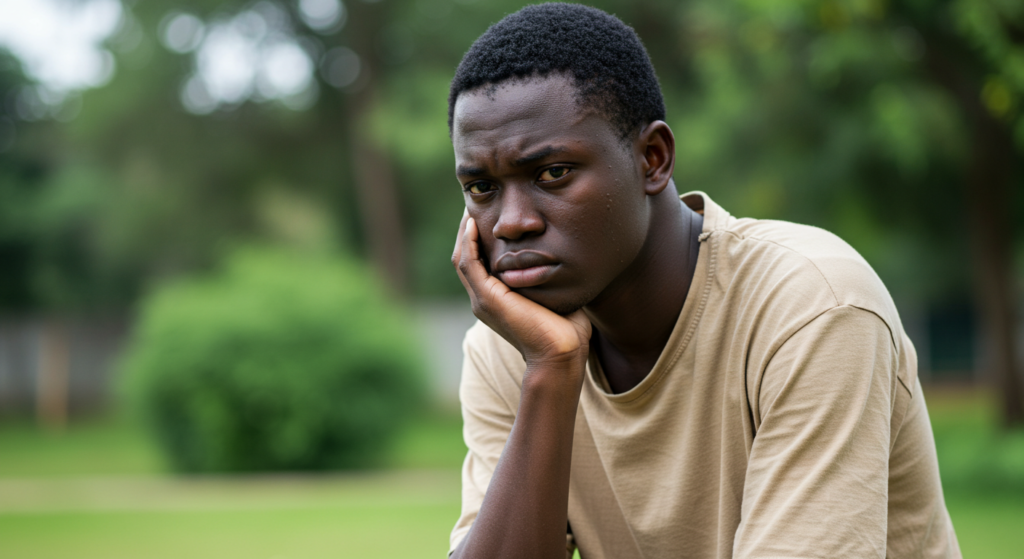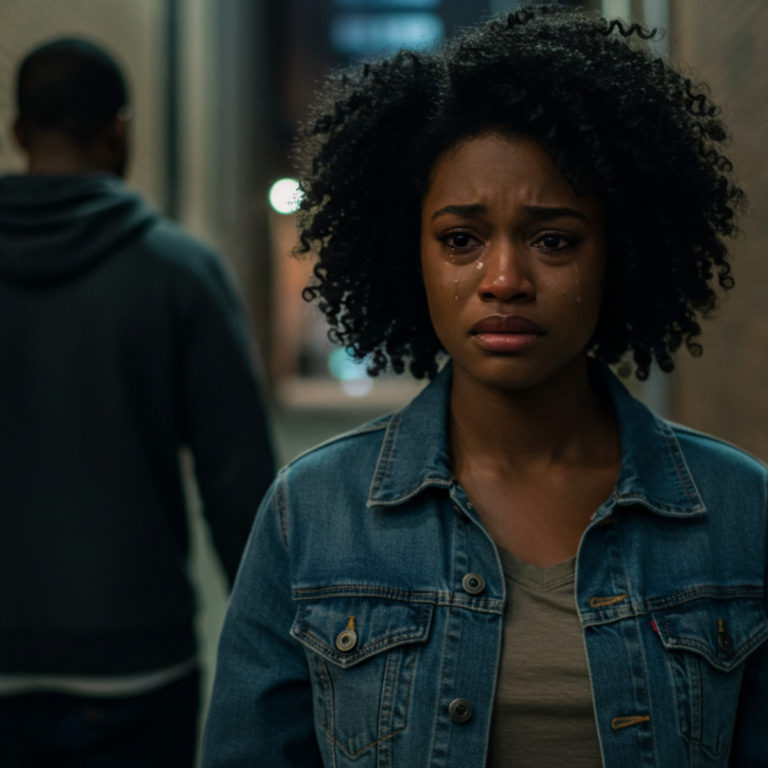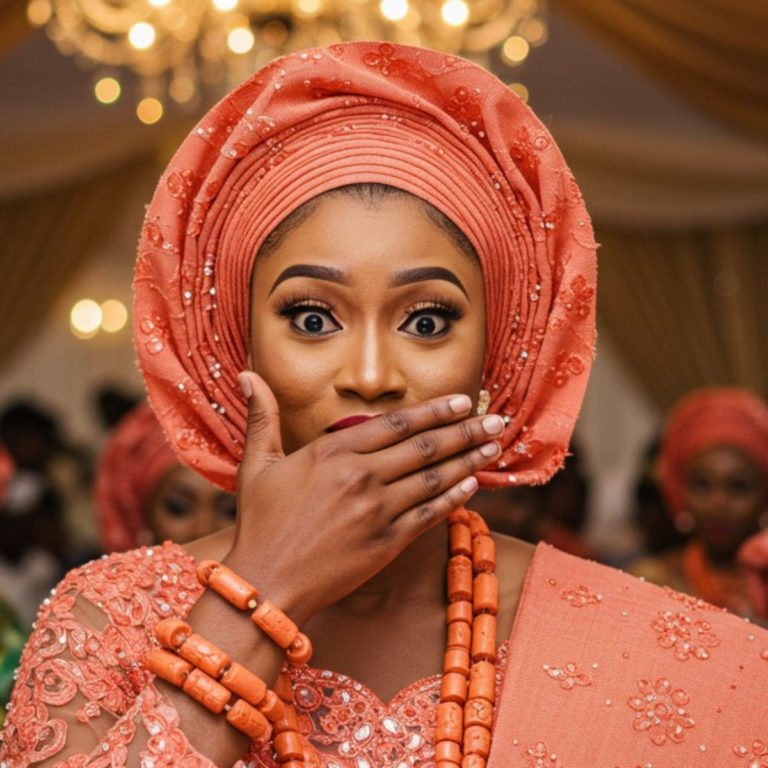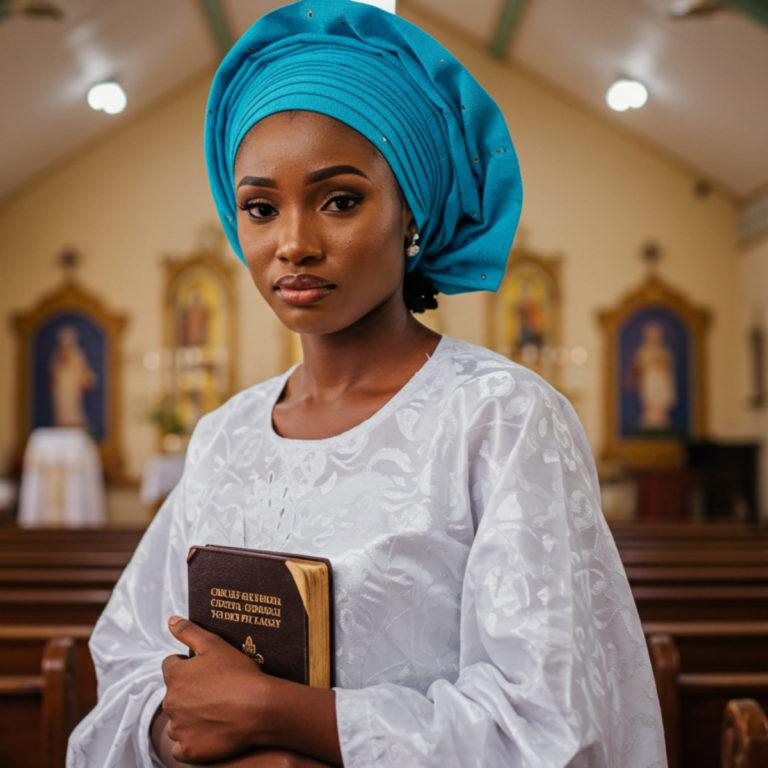
In Nigeria, children are often seen as blessings — the more, the better. But this cultural reverence doesn’t always translate into care, especially when the child in question is adopted. Adoption is often treated less like a deliberate, lifelong commitment and more like an act of charity. And when a child is seen as a “project” instead of a person, the consequences can last a lifetime.
In this article, Zikoko spoke to Nigerians who were adopted; some by strangers, others by extended family. They shared what it was like to grow up under roofs where they were always reminded that they didn’t really belong.
“My aunt made me pick an entire 50kg sack of beans in the sun.” — Iyun* (55)
In 1978, I went with my mother to visit my paternal uncle. As soon as his wife, my aunt, saw me, she begged my mum to let me live with them because the village was “no place for a beautiful child like me to grow up.” She and my uncle promised to fund my schooling, and so my mother agreed. I came to live with them in 1979, and while they fulfilled their promise of sending me to school, albeit a public school, my aunt spent the fifteen years that followed terrorising me.
There are so many instances I can remember. First, after only a month with them, she said her kids couldn’t mingle with village children, so she banished me and my other cousins to the boys’ quarters. Then she would use a food scale to weigh out how much food she served us, never more than 250g. She said if we were hungry, we should go to our village and ask our fathers for food. She claimed we were the ones eating her husband’s riches. My uncle was typically kind, but he believed that the running of the home was up to his wife, so he would turn a blind eye to our maltreatment— unless it was beyond the pale, which was several times. Like when I fell and broke a plate, and as punishment, my aunt made me pick an entire 50kg sack of beans in the sun. If she found even a speck in the ones I had picked, she would pour everything back in the sack, shake it up and ask me to start over. My uncle had to step in after three days because the skin on my neck, legs and arms had turned bright red. I endured the maltreatment till I could get admission into the University of Ilorin, and I have never looked back.
Sometimes, I wonder why she asked my mum to leave me with her. The way she treated me, you would have thought it was my mother who was begging them to take me in. I’m glad those years are behind me.
“My younger siblings didn’t even know I was adopted” — Allen* (36)
My father’s brother is my biological father. He impregnated his girlfriend in Kaduna and abandoned her. She died of an illness when I was only seven, and her mum dropped me off with my adopted father, saying someone had to be responsible for my upkeep. My adopted father, whom I see as my real dad, had just gotten married but hadn’t had any kids yet— so he and his wife took me in as their own.
I am the firstborn of this family. There’s never been any question about it. I have two younger siblings, and they didn’t even know about the adoption until maybe six or seven years ago, when our parents were randomly discussing it. I’ve never been treated differently or poorly. I actually thought this was the norm with adoption until I got to the university and started seeing what other adopted kids were going through. I’ll always be grateful to my parents for being a good example and treating me with kindness.
“One day, she simply stopped giving me food” — Ayobami* (48)
I spent the first 10 years of my life in a small village in Ondo State. One day, one of my rich uncles visited from Ibadan, and I begged him to let me visit for the holidays. It was the best month of my life. He took me to a dentist to have my teeth professionally cleaned, and for the first time in my life, I had pearly white teeth. I begged him to take me in and send me to school. I, too, wanted to go to the dentist often and build a cosy house in Ibadan. He was happy to do it, but his wife was a terrible person.
They had four kids and a massive house, but I did all the chores; even the house help wasn’t allowed to do anything except cook. I grew up helping my mum on the farm, so hard work wasn’t a big deal to me. I woke up early before school to do the morning chores, and when I got back, I did the evening chores.
My uncle and aunt were wealthy, she hosted many dinner parties and small celebrations and that meant I would sometimes be up until 1 am in the morning washing and drying dishes because my aunt threatened to send me back to the village if I left any unwashed dishes out overnight.
I did my work with no complaints, no matter how many more chores she added to my plate. Then one day, she simply stopped giving me food, which was devastating because the one thing I loved as a child was food. I would sneak out to her neighbour’s house to beg the maid for any leftovers, even the end slices of bread. After a week of this, I went to prostrate to my uncle, begging to eat anything. I couldn’t keep up with school and the chores on an empty stomach.
He was shocked to hear about what his wife was doing, and it caused a big problem in the house. My aunt said that I was a wizard sent to destroy her peaceful home. She began to reserve her violence for when my uncle went away on work trips, which was often. Every time I washed his car before a trip, my stomach would knot up with anxiety. I started to steal food like uncooked rice, garri and beans. I hid them under my bed so that I would have something to eat when he wasn’t around. The neighbour’s househelp would help me boil the rice I had stashed away, and I would eat it plain because I had no way to store tomatoes to make stew.
That was how I managed to survive until I passed my WAEC exams. I chose to go to Minna for University because I wanted to be as far away from that woman as possible. To this day, I’m not close to my cousins even though we lived together for more than a decade. There’s just too much resentment and bad blood because of their mother’s actions.
“I never felt like I belonged” — Arike* (28)
I don’t want to come off as entitled because I wasn’t treated as badly as some other stories I’ve heard, but I never felt like I belonged in my adopted family. My parents treated their biological children very differently from how they treated me. In all our family photos, I stand alone on the farthest edge, while everyone else has their arms around each other.
For context, my parents adopted me because they were trying to have children for six years with no luck. After they had the children they were praying for, I guess they didn’t know what to do with me.
Growing up, I went to the same schools as my siblings, but they got dropped off and picked up, while I had to get transportation to school from as young as 8. I only got new clothes every other year, while my siblings got new clothes at the start of every new school term. It wasn’t like we were struggling; my parents are well off. It was just another way to make sure I never forgot I wasn’t really their child, and it still stings today.
I went to a public university, and I haven’t gone home since graduating in 2021. My parents have never called to ask why. When I call, they just say they hope I’m doing well wherever I am. I’m only close to my youngest sister because I was in charge of her care when she was little, so we have a tight bond. My other two siblings treat me like dirt; we don’t really talk, and honestly, I’m okay with that.
I want to adopt a child of my own when I’m more settled, and I’ll never make them feel odd or ostracised when they are with me.
If you enjoyed reading this, you’ll also enjoy: “He’s an abusive deadbeat” — These Nigerians Explain Why They Cut Off Their Parents




